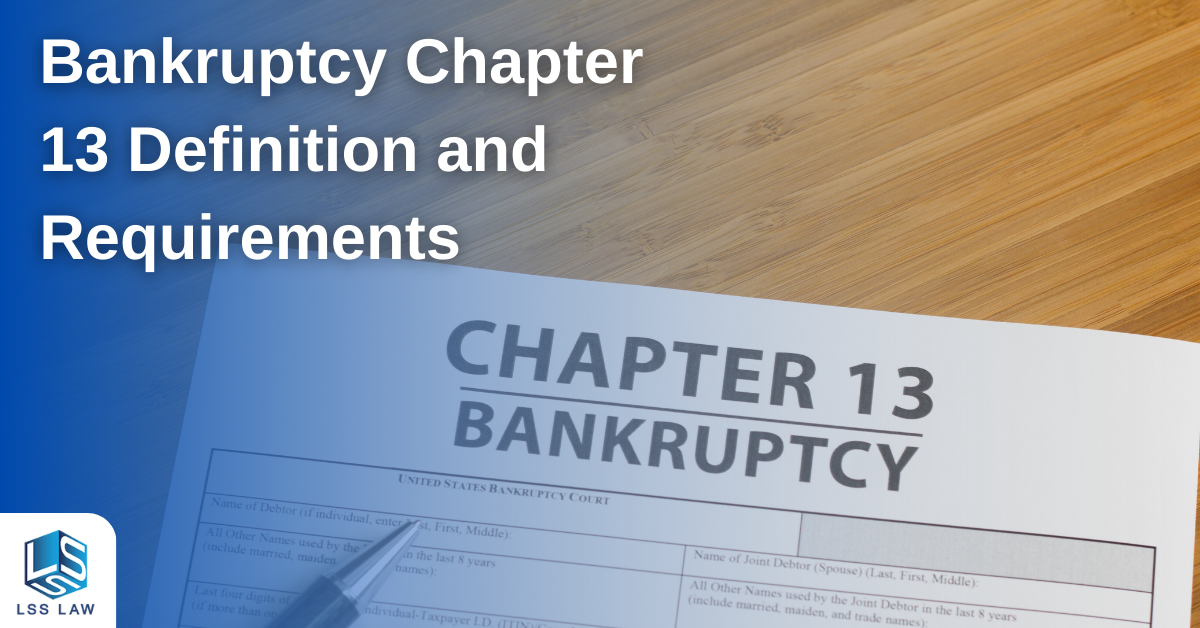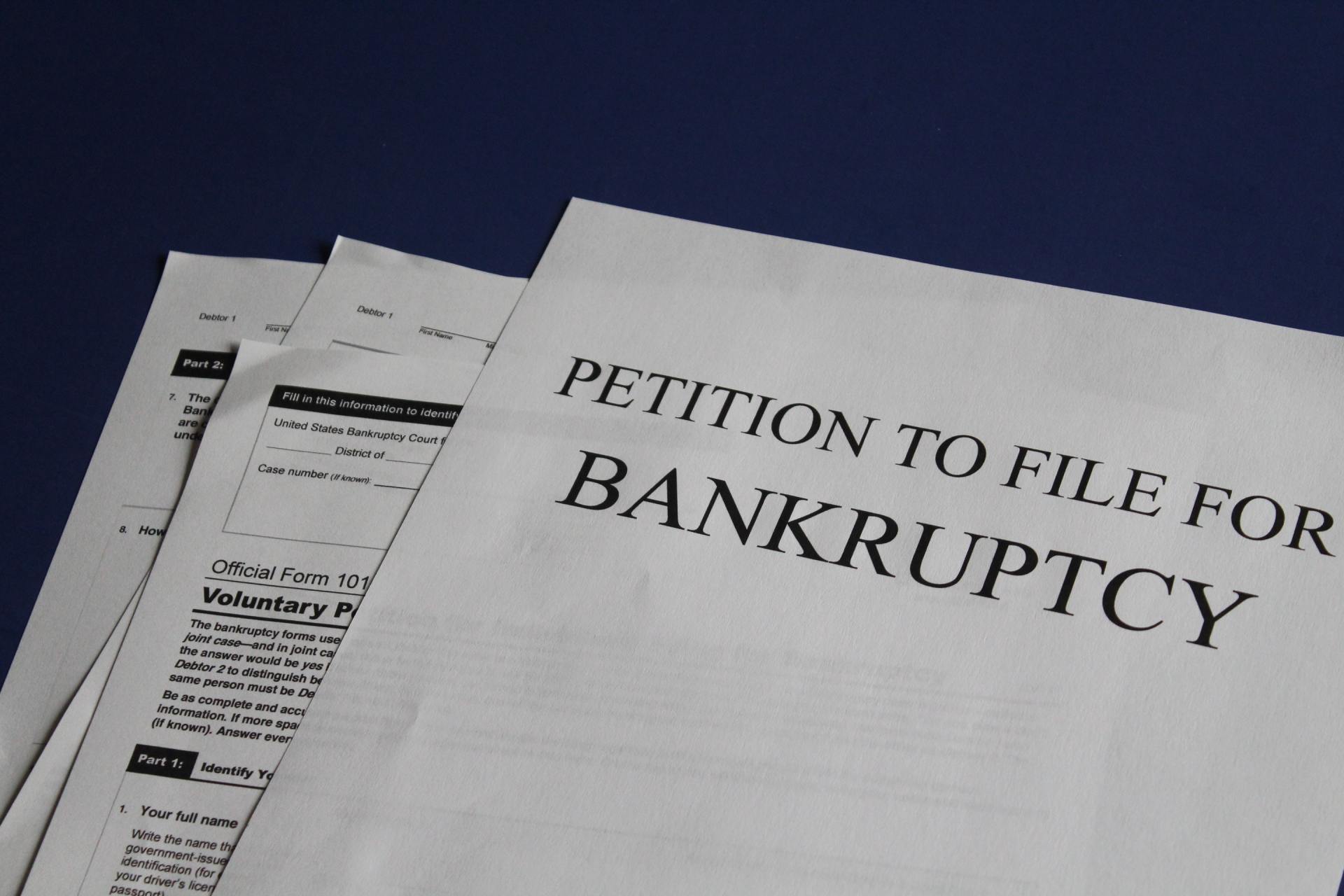Chapter 13 bankruptcy Florida offers individuals a lifeline to financial recovery, providing a structured framework to manage debt and regain financial stability. With its unique benefits and eligibility criteria, Chapter 13 bankruptcy has become a popular choice for Floridians seeking debt relief.
This comprehensive guide will delve into the intricacies of Chapter 13 bankruptcy in Florida, exploring its advantages, the filing process, and its impact on debt and credit. We will also examine alternative debt relief options and provide answers to frequently asked questions.
Chapter 13 Bankruptcy Overview

Chapter 13 bankruptcy is a legal process that allows individuals with regular income to reorganize their debts and create a repayment plan. It provides a way to manage overwhelming debt while avoiding foreclosure, repossession, and other creditor actions.
In Florida, Chapter 13 bankruptcy has become increasingly common, with over 20,000 filings in 2021 alone. This surge is attributed to the economic impact of the COVID-19 pandemic, rising inflation, and stagnant wages.
Eligibility Requirements
To be eligible for Chapter 13 bankruptcy in Florida, individuals must meet certain criteria, including:
- Having a regular income
- Owing less than $2,750,000 in unsecured debt
- Owing less than $1,184,200 in secured debt
- Not having filed for bankruptcy within the past 180 days (or 8 years if a previous bankruptcy was dismissed)
The Chapter 13 Bankruptcy Process

Filing for Chapter 13 bankruptcy in Florida involves a series of steps to help individuals reorganize their debts and create a repayment plan.
The process begins with the filing of a petition with the bankruptcy court, which includes a list of assets, liabilities, and income. Once the petition is filed, an automatic stay is put in place, which prohibits creditors from attempting to collect on debts.
Role of the Bankruptcy Trustee
A bankruptcy trustee is appointed by the court to oversee the bankruptcy case. The trustee’s responsibilities include:
- Reviewing the debtor’s financial information
- Administering the Chapter 13 plan
- Distributing payments to creditors
- Filing reports with the court
Creation and Implementation of a Chapter 13 Repayment Plan
One of the key aspects of Chapter 13 bankruptcy is the creation of a repayment plan. This plan Artikels how the debtor will repay their debts over a period of 3 to 5 years.
The plan must be approved by the court and must meet certain requirements, such as:
- The plan must be feasible and realistic
- The plan must provide for the payment of all priority debts
- The plan must provide for the payment of as much of the non-priority debts as possible
Once the plan is approved, the debtor is required to make regular payments to the bankruptcy trustee, who will then distribute the funds to creditors according to the terms of the plan.
Chapter 13 Bankruptcy and Debt Relief

Chapter 13 bankruptcy provides individuals with an opportunity to restructure their debts and catch up on missed payments. It allows debtors to discharge certain types of debts while repaying others through a court-approved repayment plan.
Types of Debts Discharged in Chapter 13 Bankruptcy
Chapter 13 bankruptcy can discharge various types of unsecured debts, including:
- Credit card balances
- Medical bills
- Personal loans
- Unpaid taxes (in some cases)
However, certain debts are not dischargeable, such as:
- Student loans
- Alimony and child support
- Debts incurred through fraud or intentional misconduct
Catching Up on Missed Mortgage Payments
Chapter 13 bankruptcy can assist homeowners who have fallen behind on their mortgage payments. The repayment plan allows debtors to catch up on missed payments over a period of three to five years. During this time, the debtor is protected from foreclosure proceedings.
Impact on Credit Scores
Filing for Chapter 13 bankruptcy will have a negative impact on a debtor’s credit score. The bankruptcy will remain on the debtor’s credit report for up to 10 years, which can make it difficult to obtain new credit or loans. However, rebuilding credit after bankruptcy is possible with responsible financial management and timely payments.
Alternatives to Chapter 13 Bankruptcy

Chapter 13 bankruptcy isn’t the only debt relief option available. Other alternatives, like Chapter 7 bankruptcy and debt consolidation, may be more suitable depending on your financial situation and goals.
Chapter 7 Bankruptcy
Chapter 7 bankruptcy is a form of liquidation bankruptcy. This means that your nonexempt assets will be sold to pay off your creditors. You may be eligible for Chapter 7 if you meet certain income and asset requirements. One of the main advantages of Chapter 7 is that it can be completed in a relatively short period of time, typically within 4-6 months.
However, Chapter 7 bankruptcy can have some negative consequences. For example, you may lose your home, car, or other valuable assets. Additionally, Chapter 7 bankruptcy can stay on your credit report for up to 10 years, which can make it difficult to obtain credit in the future.
Debt Consolidation, Chapter 13 bankruptcy florida
Debt consolidation is a process of combining multiple debts into a single, lower-interest loan. This can make it easier to manage your debt and save money on interest. There are several different types of debt consolidation loans available, including personal loans, balance transfer credit cards, and home equity loans.
Debt consolidation can be a good option for people who have a good credit score and a steady income. However, it’s important to be aware of the potential risks involved. For example, if you miss a payment on your consolidation loan, you could end up in a worse financial situation than before.
Choosing the Best Debt Relief Option
The best debt relief option for you will depend on your individual circumstances. If you’re not sure which option is right for you, it’s important to speak with a qualified bankruptcy attorney.
Final Wrap-Up: Chapter 13 Bankruptcy Florida
Whether you are struggling with overwhelming debt or simply seeking a path to financial freedom, Chapter 13 bankruptcy Florida offers a viable solution. By understanding the process, eligibility requirements, and potential outcomes, you can make an informed decision about whether this debt relief option is right for you.
Quick FAQs
What are the eligibility requirements for Chapter 13 bankruptcy in Florida?
To be eligible for Chapter 13 bankruptcy in Florida, you must have regular income, be able to repay a portion of your debts over a 3-5 year period, and not have excessive unsecured debt.
How does Chapter 13 bankruptcy affect my credit score?
Filing for Chapter 13 bankruptcy will negatively impact your credit score, but it can also provide an opportunity to rebuild your credit by making regular payments and adhering to the terms of your repayment plan.
What types of debts can be discharged through Chapter 13 bankruptcy?
Chapter 13 bankruptcy can discharge unsecured debts such as credit card balances, medical bills, and personal loans. However, secured debts like mortgages and car loans are not typically discharged unless you reaffirm them.